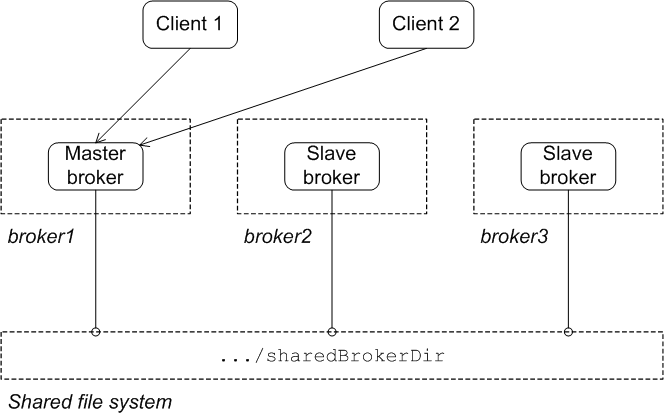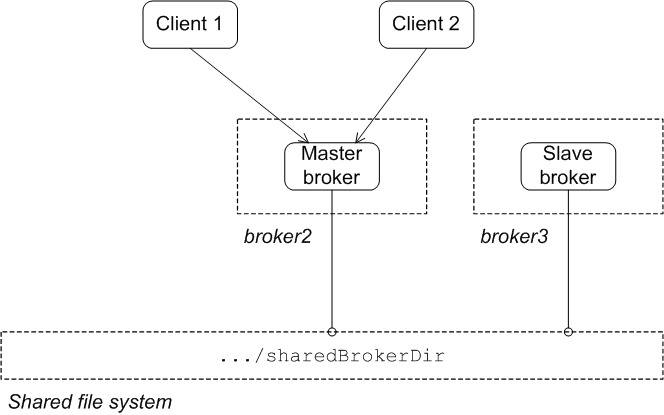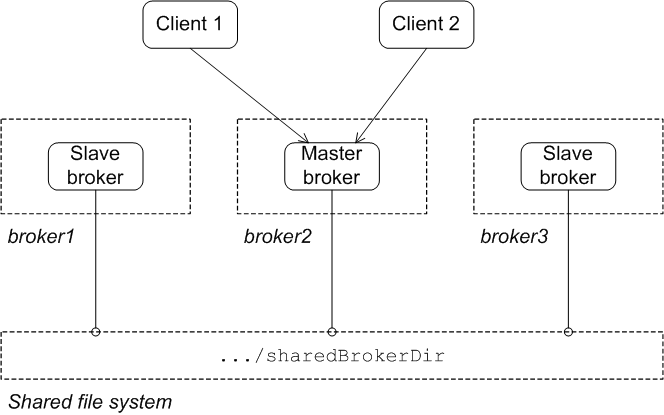Red Hat AMQ 6
As of February 2025, Red Hat is no longer supporting Red Hat AMQ 6. If you are using AMQ 6, please upgrade: Migrating to AMQ 7.Chapter 3. Master/Slave
Abstract
Persistent messages require an additional layer of fault tolerance. In case of a broker failure, persistent messages require that the replacement broker has a copy of all the undelivered messages. Master/slave groups address this requirement by having a standby broker that shares the active broker's data store.
A master/slave group consists of two or more brokers where one master broker is active and one or more slave brokers are on hot standby, ready to take over whenever the master fails or shuts down. All of the brokers store the message and event data processed by the master broker. So, when one of the slaves takes over as the new master broker the integrity of the messaging system is guaranteed.
Red Hat JBoss A-MQ supports two master/slave broker configurations:
- Shared file system—the master and the slaves use a common persistence store that is located on a shared file system
- Shared JDBC database—the masters and the slaves use a common JDBC persistence store


